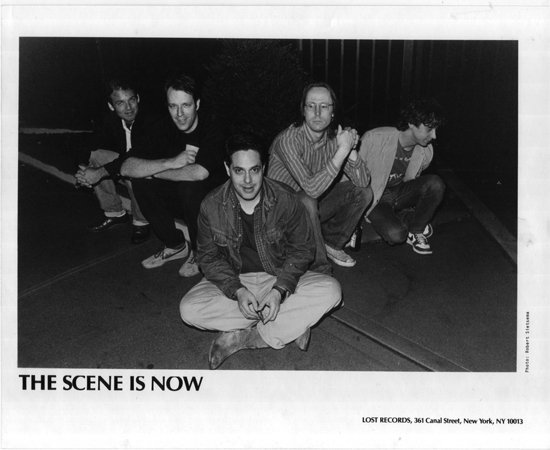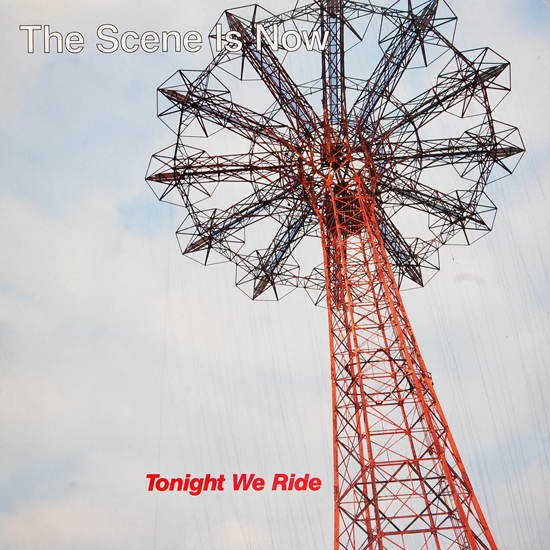Like many people of my generation, I have the incomparable John Peel to thank for instilling in me an appreciation of obscure and otherwise insufficiently loved music. Long before I had even heard of Autotune (most memorably brought home to the public in 1998 by the terrifying vocal on Cher’s ‘Believe’), it seemed obvious to me that if the majority of mainstream pop music was composed entirely of the polished and treated bits, with all the rough individual parts removed, then there might be great mileage for me to be found in bands comprised entirely of cuts from the reject bin, music that was almost 100% grit and idiosyncratic fibre. Unsurprisingly, I became intensely drawn to such artists as Captain Beefheart, The Residents, The Red Krayola, Pere Ubu and, of course, the work of Tom Waits from Swordfishtrombones onwards. No matter what other people might have thought, my tendency towards loving obscure records was never a matter of pride at having discovered something special that I wanted to keep for myself, but rather a matter of wishing that my finds were more widely known.
This desire to uncover forgotten gems on the fringes of underground music was further stoked by an introduction to the original Napster between 1999 and 2001, when I felt like I was unearthing artists and recordings daily. Crazy advertising jingles composed by Van Dyke Parks, stuff like The Blitzoids, The Decayes, Mofungo, or the wonderful new-wave retro-futuristic groove of the Del-Byzanteens, which featured a young Jim Jarmusch on vocals and keyboards. In the fantastical short-story ‘Tlön, Uqbar, Orbis Tertius’ by the Argentine writer Jorge Luis Borges, a scholarly article refers to certain editions of an encyclopedia which imply the existence of another, parallel, world. In much the same way, I imagined my voyage of discovery to be almost equivalent to acquiring an mp3 player filled entirely with music from an alternate universe.
The albums that I really enjoyed, I began to seek out, usually only available as second-hand vinyl on eBay. One day my partner, heavily pregnant with our first and only child, was attempting to explain the details of the antenatal class we were due to attend later that day, only I was too busy excitedly opening my package, freshly delivered by the postman, containing the first Scene Is Now album Burn All Your Records, talking over her, telling her how thrilling it was for me to get hold of such recordings, unavailable as yet in digital format. Stoically sidestepping a disgusted glance from her direction, I flipped the record over, marveling at what seemed to me to be an entirely apt record label for this almost-forgotten gem: Lost Records.
According to keyboardist and one of two long-term members, Phil Dray: "We chose Lost because Chris is always losing everything… and it turned out to be quite a wise choice, looking back now."
The Scene Is Now formed in 1982, having risen from the ashes of the no wave band Information, and were comprised of Phil Dray, singer Chris Nelson, Dick Champ and Jeff McGovern who was the drummer with fellow NYC based band Mofungo. Lost Records was formed by the band in order to release their first single ‘1150 lbs’ which concerns the trials and tribulations of a "misunderstood gorilla who becomes public enemy No 1". Like the majority of the, likely few, people who had heard of the band, I had been steered in their general direction by the fact that Yo La Tengo were friends and fans of TSIN and by their cover of their song ‘Yellow Sarong’. The American music critic Byron Coley had also gone on record as being a fan, saying: "It is now only left to you, the wily hepster living far from the physical pull of Manhattan’s Lower East Side, to complete a circuit and allow the wonderful motes on this album to settle upon and shape the aesthetic peaks of the hinterlands."
Considering the fact that the albums were all pressed in editions of 1,000 before their re-release by the Australian label Lexicon Devil in 2009, this was something that was easier said than done.
The members of first incarnation of TSIN all shared a common perspective that was the starting point for the development of the band’s sound. They were aware of their own lack of musical training and low level of technical ability, whilst simultaneously being willing to experiment with any number of musical instruments and likewise unafraid to use grandiose or flippant titles like Burn All Your Records and Total Jive. At the same time, as music fans themselves, they all had very wide ranging tastes and an appreciation for many different genres. The first album came off sounding like a more eclectic Half Japanese or one of the more willfully experimental Red Krayola records transposed to downtown NYC instead of Houston, Texas. It also had key elements in common with early Residents recordings, transposing incongruent images and sounds to collage-like effect. Chris Nelson’s lyrics appeared craftsmanlike and precise despite the often off-the-cuff manner of his delivery: "All men would be free / to think themselves at Liberty / but for the snare of history / here are your songs…" His singing, which Ira Kaplan recently described in his Quietus Bakers’ Dozen as "truly unique", is indeed wildly individual, obviously untutored, yet intensely emotive. By the time of the second album, Total Jive, the band were moving in a slightly more pop direction, although a quick glance through song titles such as ‘Sartre’s Acid Trip,’ or ’10-Day Space Shuttle Mission’ is enough to instantly throw doubt on any notions that they were aiming for any kind of pop-hit success.
Tonight We Ride, released in 1988, is easily the most accomplished of the band’s early output, a further development of what Phil Dray’s wife called ‘swerve music’ – tunes that are close to being regular pop music but which are too off-kilter to conform to such a narrow definition. For this recording, regular members Chris Nelson, Phil Dray and Dick Champ (centre below) were joined by Pere Ubu bassist Tony Maimone and drummer Will Rigby from the 70s power pop group the dbs (far left and far right, respectively).

Phil Dray recalls his first meeting with the Ubu bassist: ‘The first time I met Tony was at the apartment on 13th St in 1985 or ’86. 346 East 13th St was at that time home to Willie Klein and Rick Brown among others, both original members of Blinding Headache, and Willie was in Mofungo for its duration. Tony had just moved to NYC from Cleveland. Pere Ubu had gone into a dormant phase and he was looking for something to do musically. We gave him our first two LPs, which he said he liked… then Jeff departed and we asked Will, who liked the idea of playing with Tony."
Although TSIN were influenced by Pere Ubu and were present at their early show at CBGBs when David Thomas still went under the name of Crocus Behemoth, their music is very different from the avant garage, sci-fi tinged rock n’ roll of the infamous Ohio band. Tonight We Ride is perhaps closest to Ubu’s middle-period, more pop-oriented work, with its essence of romanticised Americana reflected from the funhouse mirror. It also features some of the same electronic sounds that Ubu used, as Tony Maimone was in possession of Alan Ravenstine’s synth during the time of the album’s recording and it was used for some of the overdubs.
The album’s songs traverse a broad range of influences. ‘Moonlight Broil’ could almost be a Tin Pan Alley tune if it weren’t for the demented brass section. ‘Big Steam’ is an uplifting anthem that evokes a lost era of railroad travel, "where the grass grows through the tires and wheels rust away". ‘Full Fathom Five’ sets lyrics from Shakespeare’s The Tempest against an up-tempo new wave foot-tapper laced with peals of atonal guitar, whilst ‘Tofu Golf Course’ represents the band at their most abstract and laconic, ending with words borrowed from the postmodern American author, Donald Barthelme. ‘Hepsy Brown’ has an almost country-inflected sound, and ‘Pinwheel’ features some particularly Ubu-reminiscent keyboard-as-weather noises. ‘Pickle Barrel’ is a particular highlight, which features lyrics that could be read as being a direct summation of the band’s intent: "Life may have its salty sting / but a pickle is enough to make me sing / I took a tumble into the brine / like the pickle, I’ll last a long time." The closing track, and one of my own personal favourites, ‘Tin Roof’, was apparently written with the intention of being a 12” disco hit, but in typically wayward Scene style comes off instead as a delicate, yet effervescent, piano-led tune inspired by a holiday Chris Nelson spent in Jamaica with Mofungo bass player Robert Sietsma and his family.
The cover of the album depicts a latticework metal fairground attraction, whilst the reverse depicts the same wheel-topped tower against a blue-grey and golden sunset. Chris Nelson recalled: "While the cover of the LP was the most ‘generic’ of our cover artwork at that point, it resonates for me in a few ways. Phil and I took the cover pictures ourselves – though not practiced photographers, we rented a Hasselblad camera and spent a late afternoon shooting at Coney Island. Like many Scene ideas, using the parachute jump tower to illustrate the title was tongue-in-cheek, the ride was long abandoned and derelict when we took the pictures, dodging a pack of wild dogs living beneath to do so. To have jumped from the top in 1988 would not have been an amusement, it would have been suicide… Though the parachute ride tower has since been restored (though not as a functional ride), and is on a section of the Coney Island boardwalk with many newer ‘amenities’ such as a minor-league baseball stadium (at least until Hurricane Sandy), I will always associate Tonight We Ride with the mood of gathering gloom captured in the back cover photo."
TSIN continue as a functional band to this day, with two excellent releases, Songbirds Lie and Magpie Alarm available from the UK-based independent label Tongue Master. A compilation of their earlier material, The Oily Years, is also available on Bar None records. Although their music might not be for everyone, those interested in some of the other bands mentioned in this piece really ought to give them a go. As Byron Coley said: "You’ve got nothing to lose and so goddamn much to gain."
Thanks to Chris Nelson and Phil Dray for their invaluable contributions to this article


